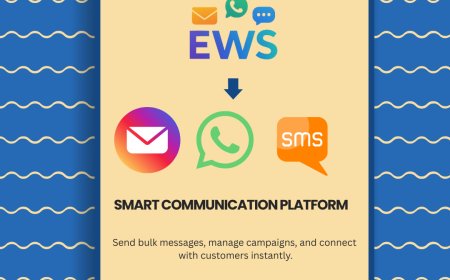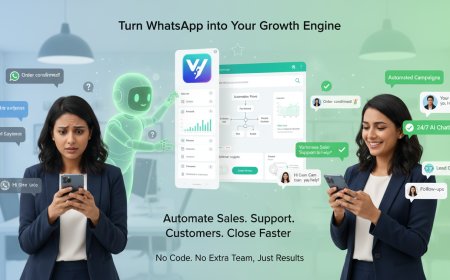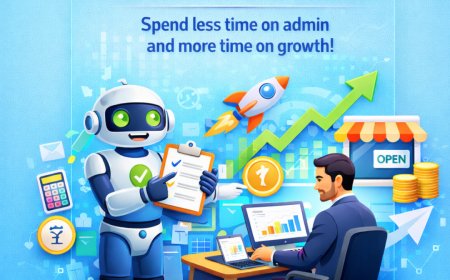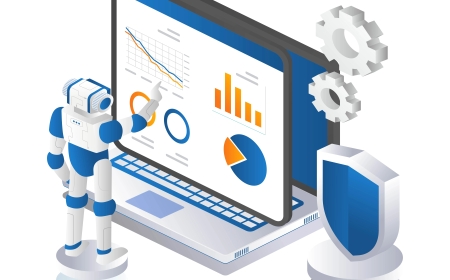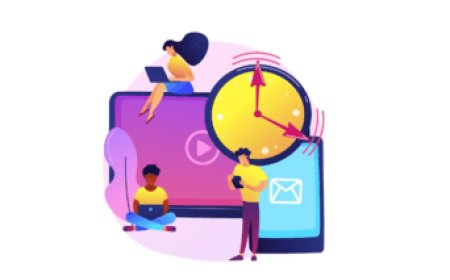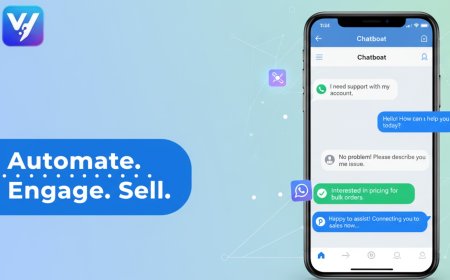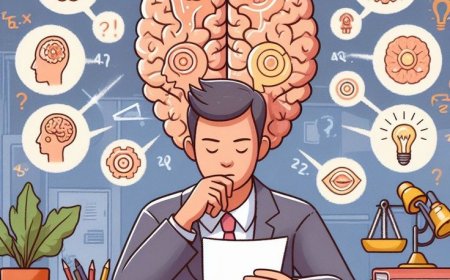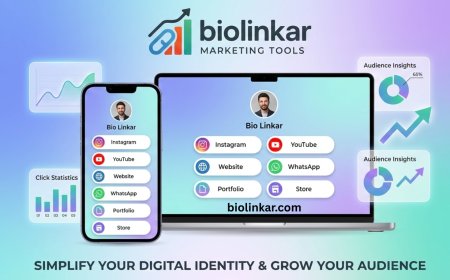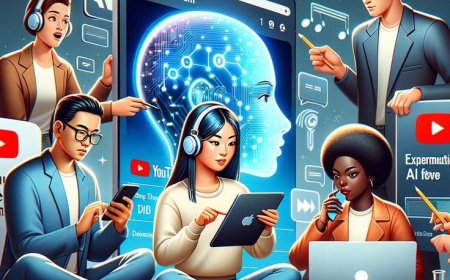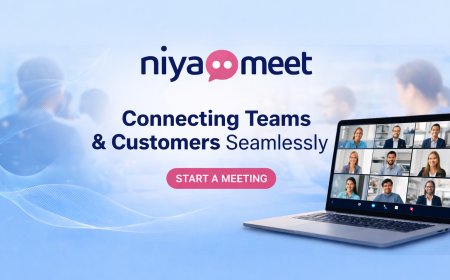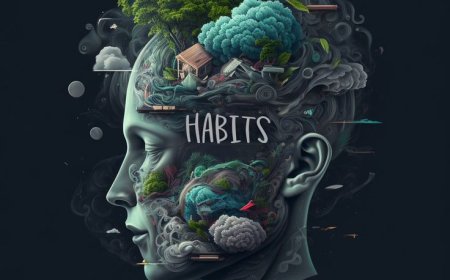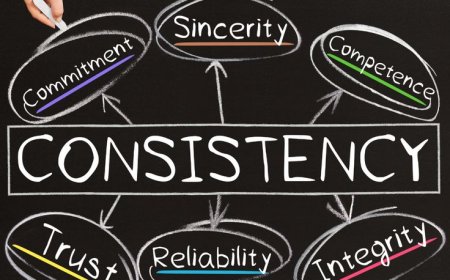The Age of AI is Upon Us, and Here's How Businesses Must Adapt to Survive
The rise of AI is transforming industries. Learn how businesses can adapt their strategies, workforce, and technology to thrive in this fast-changing digital landscape.

Have you recently been hearing about Artificial Intelligence (AI) everywhere around you? If yes, you are not the only one! AI has not only been talked about as the technology of the future, but has already had its strong impact on nearly all industries surprisingly fast. The transformation is not only among the giants like Google and Amazon, but it’s a revolution that every company will feel, no matter how small they are, if they choose to be the first.
The situation is very clear: the AI era has begun, and those businesses that will adapt will be the ones that survive and even, to some extent, prosper.

Bringing the Competition Down to the Same Level: AI for Small Business
One of the major misunderstandings regarding AI is that its cost is high, and it is very complicated for smaller firms to use and understand. Nevertheless, this is not the case anymore. In fact, AI tools for business that are very cheap and at the same time beneficial for small businesses to compete are available today.
For years, large companies had huge teams for data analysis and customer service. Now, AI brings similar power to a local scale.
Example in Action (The Small Shop): Imagine a tiny, run by a family coffee roaster, Henry's House of Coffee. The owner uses AI technologies to read customer data, thus allowing him to discover the actual value of a customer and choose the best discount to offer. Such a high caliber of marketing insight was previously confined to huge e-commerce platforms, but it is now a common AI for small business applications.
For small enterprises, AI adoption is not about taking over humans. On the contrary, it is making use of intelligent AI solutions for business to manage the dull and time-consuming tasks. The business employees are henceforth permitted to focus on the most important aspects, which are: inventiveness, planning, and cultivating real customer relations.
From Simple Chatbots to Autonomous Agents
When we think of business AI, many people first think of a chatbot. While automated customer service is a classic use, the new wave of AI is far more powerful. We are moving from simple automation to intelligent automation. This is where the newest AI ideas for business are coming from.
AI Ideas for Smarter Operations
The latest trend isn't just Generative AI (like tools that write text or create images). It's Agentic AI. Imagine an AI not just answering questions but actually acting to address issues. Like a virtual employee.
1. Supply Chain Superpowers: Organizations are creating a digital twin for their complete distribution networks. UPS is one of the companies that confronts the problem this way. Their AI-supported modeling conducts several thousand simulations to achieve the best delivery routes, determines the places of congestion, and eventually ensures prompt package delivery to the customers. It amounts to massive savings both in money and time.
2. Code and Content Creation: Large financial companies like Goldman Sachs have begun to utilize Generative AI tools for the automatic generation of computer coding to the extent of 40%. This has led to an increase in the productivity of the developers to a great extent. In the marketing department, an AI product for business can now create an entire campaign, including ad copy and images, within minutes rather than days.
These practical instances demonstrate that AI is not merely a tool but rather a technique to transform main business processes completely from start to finish.
The Survival Guide: Where to Invest Now
To survive the AI age, you can’t just wait and see. You need a clear plan for implementing AI tools for business right now. This is a five-step blueprint for adaptation:
1. Define the Problem, Not the Tool
Don't buy an AI tool just because it's popular. First, identify your biggest pain point.
- Is it slow customer response? Look into conversational AI.
- Is it inaccurate inventory forecasting? Invest in predictive analytics AI solutions for business.
- Is it the time spent on writing routine emails? Adopt an AI writing assistant.
The goal must be measurable. You should aim to say, We will decrease our average customer response time by 40%, not just We will use an AI chatbot.
2. Start Small and Scale Up
A huge and costly revamp is the greatest error. The major reason why a lot of AI projects fail is that they become entrenched in what is referred to by experts as pilot hell.
Choose AI for small business applications that work along with your current software (such as your CRM or email platform). AI functionalities have already been incorporated into numerous tools you are currently using, ranging from Microsoft to Google to various accounting software. Don’t hesitate to take advantage of these tools!
3. Prioritize Data Readiness
Data is the main source of power for AIs. When your data is unorganized, not complete, or scattered in various places (silos), then your AI will not be of any use. Still, the primary cause of an AI strategy becoming a failure is poor management of data. There is a need for thorough and well-arranged data if one is to develop the right predictions and obtain good insights from any AI products for business that are deployed.
4. Focus on the Human-in-the-Loop
AI does not remove the need for people; it changes the job. The most successful businesses realize that AI’s role is to amplify human expertise. You need to train your team to become context providers.
For Example, AI can draft a perfect email summary, but a human must provide the context: I need this summary to be polite, focused on the delay, and written for the CEO. Human leaders provide the strategy, context, and ethical oversight.

A Call for Future Thought: The Ethical Horizon
In the firing line of business dealings, AI is becoming an essential element that cannot be avoided. If a retailer that is very large may eventually reach the level of efficiency your company has to compete with, then the AI-driven personalization could up to 40% customer interaction and reduce cart abandonment by 22% (Source: Ankur Tiwari, Digital Innovator).
Still, the technology's adoption has been accompanied by a debate on the ethical side of it. Who is to be blamed if an AI system makes a mistake? What is the way to prevent data breaches for us and for our customers?
In a sense, the business of the future will not only consist of the AI solutions for business but their responsible use. The firms that win will not only become adept with the technology but also be the ones that can make human values, transparency, and trust the cornerstones of their strategy.
The changeover is already taking place. Is your business going to survive the transition or be the one to change its entire industry? Now is the time for making the decision and putting in the effort.
What's Your Reaction?
 Like
0
Like
0
 Dislike
0
Dislike
0
 Love
0
Love
0
 Funny
0
Funny
0
 Angry
0
Angry
0
 Sad
0
Sad
0
 Wow
0
Wow
0





